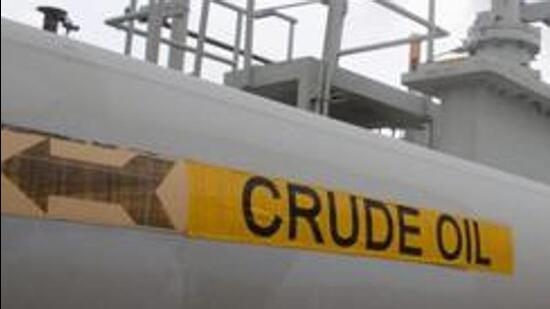Keep the cash for bad times
Any decision to pass on gains from falling crude prices to consumers must factor in the potential loss of revenues in a period of low growth
The price of India’s crude oil basket (COB) stood at $66.4 per barrel on April 14. For the month of April, so far, the average is $68.7. The 2024-25 annual average was $78.6, and the price was $72.5 even in March. This April’s average so far is the lowest since the April 2021 monthly average, which stood at $63.4. Retail prices of petrol and diesel, however, are virtually unchanged from March 2024 when the COB was at $84.5. These numbers clearly show that India’s de jure deregulated fuel price regime is a de facto regulated one. To be sure, some of the windfall gains from the recent fall in crude prices will go the Union government, which has put an additional excise duty of ₹2 per litre on sale of petrol and diesel.

Is the government being unjust in pocketing these windfall gains instead of passing them on to consumers? This is a valid question to ask and a tempting one to answer in the affirmative. Does the government need to do this when inflation is on a declining path and monetary policy has already made a decisive pivot towards supporting growth? Perhaps not. Has this government adopted a counter-cyclical political economy approach to fuel prices, where it uses revenues from oil prices to buffer headwinds from other sources in times of an actual or expected growth slowdown and brings down prices when political requirements demand this? Experience in the post-pandemic era suggests so. In effect, lower oil prices will boost India’s macroeconomic stability.
It needs to be underlined that most analysts termed the 2025-26 Union Budget’s revenue projections over-optimistic given the ₹1 lakh crore impact of the upward revision in income tax slabs. The ongoing global turbulence is bound to make growth and revenue headwinds stronger. So, is there nothing wrong with the government not passing on the benefits of lower international energy prices to consumers? The answer to this question depends on a cost-benefit analysis of what will hurt more: notionally higher fuel prices or the fiscal adjustment which would have to take place if gains from lower oil prices did not compensate for loss of other revenue during times of low growth.
If there is a point to quibble over, it is that the Union government is reaping windfall gains by using a special duty. This is not part of the divisible pool, which means it is not shared with states. The only legitimate question is why are states not being given their share of this counter-cyclical buffer?





